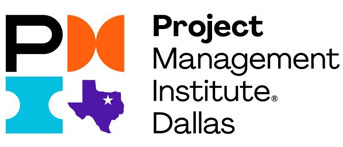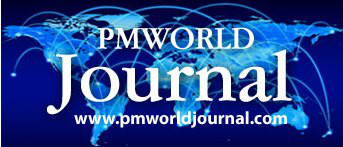Monday, May 20, 2024
May 20, 2024, 9:45 – 10:45 a.m.
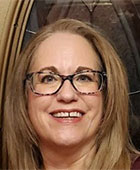
Finding the Tipping Point to Improved Project Management: A Spectrum of Case Studies
Arden Dudek
Rm: JSOM 1.102
Read Abstract and BioAbstract:
Imagine being invited by a new research university CIO to launch an IT Project Management Office (PMO). But what if that opportunity occurred in a moment of extreme financial and political constraints? Perhaps there was no state higher education funding for three years. Maybe the CIO’s vision was so challenged at the rural university that he took a different position out of state. And what if the 20-year IT Director assigned as the Interim CIO questioned the necessity of a PMO?
The joy of project management is that it encompasses the art and science of leading stakeholders. Best practices and a toolbox of transferable skills are available to assess and improve how leaders organize, prioritize, and deliver measurable outcomes even in challenging or diverse planning environments. The “secret sauce” in this case study is the intentional application of the tipping point theory. Despite the challenges, the entire campus benefitted from gaining consensus, overcoming challenges, and delivering high-quality IT solutions with the new PMO.
Valuable to the broader project management community, the application of tipping point leadership brings success in other planning teams. The lessons learned from this university PMO—with a 30% Project Management Maturity improvement in one year—have since been applied in predictive, agile, and hybrid project management environments, including a seven-person non-profit organization transforming Austin’s faith and business communities, and Wall Street’s largest and most successful merger and acquisition. Let’s consider this spectrum of case studies to improve planning organizations.
Learning Outcomes:
- Recognize the theory of tipping points as described by Kim and Mauborgne (2003)
- Identify three or more steps in improving a planning organization when leveraging the tipping point theory
- Reflect on the appropriateness of considering the tipping point theory in predictive, agile, and hybrid project management environments
- Rate the effectiveness of the tipping point theory in improving the organizational planning in one or more case studies
- Discuss the pros and cons of considering the tipping point concepts in improving their current planning organization’s management processes regarding projects, portfolios, stakeholders, and/or risk
BIO:
Experienced as a Director of PMOs and Scaled Agile (SAFe) Teams, Arden is also the Founder and Principal Planner of Planning Management Consulting, LLC. She coaches leadership to achieve higher value at a faster pace while teaching improved planning processes. Arden published her higher education administration dissertation, Exploring University Project Management Presence as Related to Organizational Models, and she contributed to A Guide to the Project Management Body of Knowledge (PMBOK®) Guide—Fourth Edition.
Talent Triangle:
Ways of Working =.25
Power Skills =.25
Business Acumen =.5

Decoding Leadership Presence
Valerie Pelan
Rm: JSOM 1.107
Read Abstract and BioAbstract:
Has this happened to you? You notice your co-workers getting promoted. Your manager expresses high regard for your ability to get results, but they don’t mention your promotability. If this sounds familiar, improving your Leadership Presence skills is essential. People with Leadership Presence inspire confidence from their team, manager, and upper management that they can handle greater responsibility and assume higher levels of leadership.
This presentation provides a current view of Leadership Presence skills needed in the today’s workplace. Each attendee can pick the skills they need to focus on.
Specific Leadership Presence skills will be defined and discussed. They are communication and active listening, Emotional Intelligence, Social Intelligence Skills, Influence, Managing the Team, Managing-up, Strategic Thinking, and Stakeholders.
Leadership Presence skills fit into the PMI Talent Triangle under Business Acumen and Power Skills.
- Business Acumen: Leadership Presence skills are strategic thinking, customer relationships, and competitive analysis (market awareness).
- Power Skills: Leadership Presence skills are emotional and social intelligence, communication, leadership style, managing the team, and managing up.
Each attendee will choose specific Leadership Presence skills and decide on their Measurable Goals to improve their effectiveness and promotability. Interactive exercises throughout the presentation will foster discussion among attendees and enable each attendee to choose the skills essential for leaders in their organization’s culture.
Learning Outcomes:
- Recognize Leadership Presence skills, their definition and how to improve performance
- Determine which Leadership Presence skills to work on to improve individual performance and effectiveness
- Interact with other attendees and provide feedback on the skills needed in attendees’ organizations
BIO:
Valerie Pelan, MBA, PCC, President of Integrated Focus, provides high-quality, customized coaching for her clients to ensure they increase their efficacy and improve their leadership capabilities. With over 15 years of experience as a leadership coach, she works with executives and leaders on their Executive Presence and transformational leadership style. Her coaching clients are motivated to make better decisions, demonstrate a positive approach to organizational dynamics, and embrace a forward-looking vision. The coaching sessions provide a safe and confidential space to discuss complex situations. Her clients come from various industries, government agencies, and non-profit leadership.
Valerie’s clients like her solid business experience and understanding of organizational dynamics. Examples of clients include a VP of Marketing who improved business results by collaborating across silos, a Product Director who increased their visibility by leading a complex project and succeeding, and a VP of Operations who learned the importance of conflict management and teamwork to improve processes.
Valerie has over 25 years of leadership experience in Telecommunications and IT services, ATT and HP, leading cross-functional teams, delivering executive briefings on business and consumer segments, and advising sales teams with customer and market intelligence. With an MBA in Economics, she led teams offering new functionality and competitive pricing.
As an Executive Coach for EMBA students at the University of Texas, Dallas, Naveen Jindal Graduate School of Management, she coaches and enhances their executive soft skills. She speaks on Leadership Presence, employee engagement, and leadership models at companies, non-profits, and professional associations, such as PMI-Dallas and the American Society for Quality.
Valerie received her coach training at the University of Texas Dallas Organizational Behavior and Coaching Program. She is a Professional Certified Coach (PCC) through the International Coaching Federation (ICF) and a Doctoral student in Adult Learning and Workforce Development. Her articles have appeared in the global coaching publication Choice.
Talent Triangle:
Ways of Working =
Power Skills =.5
Business Acumen =.5
Engaging Employees in Smart Factories within Industry 5.0
A.W. Schultz
Rm: JSOM 1.110
Read Abstract and BioAbstract:
In today’s increasingly eco-conscious world, smart factories have a vital role in minimizing industrial operations’ carbon footprint. While technological advancements have enabled these factories to become more energy-efficient, employees’ active involvement and commitment truly drive down greenhouse gas emissions. Currently, factories are responsible for producing the largest amount of greenhouse gases (29%). The European Union has determined that to achieve this goal, we need to undergo the next industrial revolution, which is Industry 5.0. Industry 5.0 will focus on sustainability, resilience, and human-centricity. However, bringing these factories into existence requires employee engagement, and it can be a challenging task for factories when employees show little interest. This topic aims to explain how smart factories are changing and how there is a direct need for people in factories to bring forward Industry 5.0.
The smart factories leverage advanced technologies such as the Internet of Things (IoT), artificial intelligence (AI), and robotics to enhance productivity, efficiency, and connectivity. However, amidst all the excitement surrounding these advancements, it is crucial to recognize the importance of engaging employees in this new era. According to a recent Gallup poll, only 23% of employees feel engaged in their work. With a new workforce and factories dealing with evolutional change such as the “Great Resignation,” transformation is hard.
Learning Outcomes:
- Recognize changes occurring in factories and how these can impact projects of the future
- Identify the importance of engaging employees in these changes
BIO:
A.W. Schultz is a scholar, consultant, and soon-to-be TEDx speaker. He works with asset management professionals in the manufacturing industry, helping them improve performance and sustainability with their employees. A.W. has over two decades of experience in manufacturing, working in various roles and industries across different locations. He holds two bachelor’s degrees and an MBA and is pursuing a doctorate in Organizational Change at Baylor University. Additionally, he is certified as a Project Management Professional, a Master Black Belt in Six Sigma, and a Certified Maintenance Reliability Professional.
Talent Triangle:
Ways of Working =
Power Skills =
Business Acumen =1


The Four C’s of Project Management
Dr. Natalie Stroble and Brian Kelly Rice
Rm: JSOM 1.117
Read Abstract and BioAbstract:
Being a Project Manager (PM) requires one to have the ability to handle all issues as they are presented yet remain on task for moving the project forward towards the intended goal. The skills required to be an effective Project Manager is an exhaustive list. The Project Management Professional (PMP) is thought to have an elite skill set that shows their experience and arsenal of tools to use that will aid in overcoming unforeseen challenges. A PMP should also have an inherent responsibility to contribute to the body of knowledge with key theoretical concepts that can be utilized while navigating project complexities. This research paper introduces the concept of the Four C’s of Project Management: Comprehend, Communicate, Compromise, and Consistent. We will explore how the Four C’s can be used to advance our mindset and incorporate new tools that are useful in the PM world. It is in formulating this new conceptualization that a PM can anticipate and plan for project risks. Additionally, the research will reveal the benefits of a useful strategy that can be used to improve the outcome of future projects.
Learning Outcomes:
Attendees will learn another valuable tool to assist in critical thinking and problem solving while working as a Project Manager.
Attendees will build upon their foundation of skills and knowledge as a PM so that their projects run more efficiently and effectively.
Dr. Stroble Bio
I have over 20 years of experience working as a Project Manager in various fields. For the last 2 years, I have worked at Harvard University in Boston, Massachusetts as a Senior Project Manager in the IT department. I hold certifications as a PMP (Project Management Professional) and a CSM (Certified ScrumMaster). I have been employed at many Fortune 500 companies like…CVS Healthcare, BlueCross BlueShield, Yum Brands (which owns Pizza Hut, Taco Bell, and KFC), Raytheon (Missile Defense Contractor), Capital One, as well as the government working for the Department of Health and Human Services, and esteemed Nonprofit, American Heart Association.
I am presently also a University Professor teaching Project Management at Bellevue University.
Brian Kelly Rice Bio
Mr. Brian Kelly Rice is a retired Chief Petty Officer. He served for over 24 years in the United States Navy. During his tenure, he visited over 50 countries, and 6 of the 7 continents. He has a MSW (Master of Social Work) from Youngstown State University and a Bachelor’s degree in Community Ministry from Geneva College in Beaver Fall, Pennsylvania. He has Certifications in Social and Emotional Learning and Character Development (SECD) with a concentration in School Leadership from St. Elizabeth/Rutgers University and a Certification in Diversity Equity and Inclusion (DE&I) from Cornell University. After retirement, Brian worked as a School Social Worker for 10 years, and as an Outpatient Therapist for adults and children for one of the largest outpatient mental health providers in his region before retiring completely. In his spare time, he is a basketball enthusiast and coaches boys and girls Varsity and Jr. Varsity Basketball. He also is the founder of a Non-Profit called Son of the City in New Castle, Pennsylvania.
Talent Triangle:
Ways of Working =.5
Power Skills =.25
Business Acumen =.25
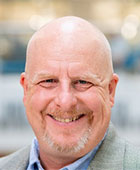
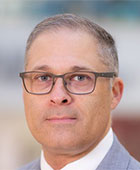
The Value of IT Service Management to IT Project Managers
Carl Ivey & Dr. David Sweeney
Rm: JSOM 1.212
Read Abstract and BioAbstract:
Today’s IT Project Managers face challenges of Volatility, Uncertainty, Complexity, and Ambiguity compounded by myriad technologies and needs of interested parties. IT Service Management describes the implementation and management of quality IT services by IT service providers through an appropriate mix of people, processes, and information technology to meet business needs. First established in the late 1980s, the IT Infrastructure Library (ITIL) offers IT Project Managers a framework designed to standardize the selection, planning, delivery, maintenance, and overall lifecycle of IT services within a business. The latest iteration of ITIL (version 4) is designed to help IT professionals navigate the Fourth Industrial Revolution and integrate newer approaches such as DevOps, Agile, and Lean frameworks, guiding the design, management, and delivery of IT services to create shared value. Through an engaging presentation, the presenters will discuss what Project Managers need to know about ITIL 4, how it relates to the work IT Project Managers do, and the value that it brings to teams, organizations, and customers.
Learning Outcomes:
At the conclusion of this presentation, attendees will be able to:
- Explain the fundamental concepts of the ITIL 4 Framework (WOW)
- Compare the relationship of ITIL 4 Practices to Project Management (WOW)
- Describe the value of the 34 practice areas that can be implemented within an organization (BA)
BIO:
Carl Ivey currently serves as Executive Director of IT at Texas A&M University and Lecturer IT Service Management within the Department of Engineering Technology and Industrial Distribution and holds an M.S. in Management Information Systems. Carl has been in technology management for more than 25 years in multiple roles including Director of IT for the Division of Student Affairs and Manager, Project Management Office within the Division of Student Affairs. In his day-to-day role, he coordinates strategy and oversees service delivery for Academic Operations within Technology Services. Carl is a 24-year Air Force veteran and certified Project Management Professional, ITIL Strategic Leader, Business Relationship Manager, and Prosci Organizational Change Practitioner.
Talent Triangle:
Ways of Working =.25
Power Skills =.25
Business Acumen =.5
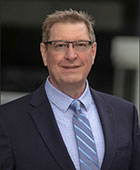
AI and human aspects of project management
Lawrence Reid
Rm: JSOM 1.217
Read Abstract and BioAbstract:
During this session we will explore and discuss the future of Artificial Intelligence (AI) and human aspects of project management.
Over the past year we learned that AI is nothing new, and it is now more mainstream and accessible for everyone. By now all of you should have copied your traditional Google search prompt into Generative Pretrained Transformers (GPT) tools like Open AI’s ChatGPT and Bing’s Copilot to compare the differences between the results.
There are many examples of routine project related tasks that AI can automate. The Project Management Institute (PMI) and Harvard Business Review (HBR) list project selection, reporting, and other exciting possibilities for AI. My favorite so far is live transcription with a summary of the meeting notes, and the generation of action items.
According to Robert J. Marks’ book “Non-Computable You”, there are many examples of things that AI cannot do. Things that cannot be broken down into computational algorithms are not candidates for AI. “Humans can behave and respond non-algorithmically.” A couple of highlights to cover include the AI Hype Curve and filters for Hype Detection.
AI is a game changer for project management, project managers, and the projects we lead. We as professionals need to leverage the possibilities of automation while embracing the human connections with our stakeholders.
Learning Outcomes:
Attendees will be able to differentiate between what is possible with AI tools and what is non-computable.
At the conclusion of this presentation, attendees will be able to explain what AI tools can and cannot do. (WOW)
BIO:
“Mr. Reid is a Customer Relationship Management (CRM) specialist with over twenty years of experience in business analysis, project management, implementation, customization, and integration for companies in the aerospace, financial services, manufacturing, and medical industries. Mr. Reid presented at the PMI Symposium and IIBA’s Building Business Continuity conferences on CRM in the Age of Artificial Intelligence.
Mr. Reid’s white paper for the presentation “What is ChatGPT and how will it impact project management?” at the Project Management Symposium in Dallas, Texas has been republished in the PM World Journal Volume XII, Issue VII – July 2023 in the Second Editions section.
Lawrence earned a bachelor’s degree in Finance from the University of Texas, Arlington, and certificate of Financial Planning from Southern Methodist University. Lawrence obtained the Certified Business Analysis Professional (CBAP), Distinguished Toastmasters (DTM), Project Management Professional (PMP), and Certified ScrumMaster (CSM) designations. He is a member of the Dallas and the Fort Worth PMI Chapters.”
Talent Triangle:
Ways of Working =.5
Power Skills =.25
Business Acumen =.25
May 20, 2024, 10:55 – 11:55 a.m.
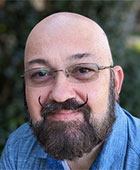
How the Grinch Stole the Schedule
Stephen Fierbaugh
Rm: JSOM 1.102
Read Abstract and BioAbstract:
How the Grinch Stole the Schedule:
Scheduling tasks on global projects without stealing the Christmas tree…
Choosing key milestone dates for global projects is difficult because of resource availability scheduling around many different cultural holidays. There is no month of the year without a major holiday somewhere in the world. Vacation laws and norms differ widely from country to country. Scheduling tasks around key resources’ Out Of Office (OOO) time can be difficult for projects spread over multiple continents and with a variety of cultural heritages.
A global list of holidays for various countries is presented. Some holidays from different heritages are briefly explored. Differences in vacation time for specific countries are also discussed. These will be illustrated with a variety of short anecdotes around cross-cultural OOO scheduling.
Holidays and vacations are not unexpected emergency occurrences. The project manager can plan for these in the schedule and resource management. Features in some popular project management tools are examined which can assist the PM.
We will wrap up by taking a quick look at how fireworks are used symbolically in celebrations around the world.
Learning Outcomes:
At the completion of this session, participants will be able to:
- Explain the differences between holiday and vacation OOO as it impacts schedules.
- List differences between countries relative to OOO planning.
- Understand the importance of active OOO schedule management by the project manager.
- Identify 3 features of popular project management tools which can assist in complex OOO scheduling.
- Appreciate the richness of holidays from cultural heritages around the world.
BIO:
Stephen Fierbaugh, PMP, is North American Project Portfolio Manager for Epiroc, a large multinational manufacturing firm, and leads project teams scattered across Europe, China, Africa, Canada, and the United States. He has a Master of Arts in Intercultural Studies and many years of experience in global project management. Stephen lives in multicultural Richardson, TX, where his son’s elementary school has students with 14 heart languages.
Talent Triangle:
Ways of Working =.25
Power Skills =.5
Business Acumen =.25
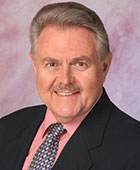
Project Management Leadership Challenges in the 2020’s—the Project Manager/Leader Hybrid
Darrel Hubbard
Rm: JSOM 1.107
Read Abstract and BioAbstract:
Project management matured into an internationally recognized and valued profession during the first-fifth of the twenty-first century. Professional organizations that support the field of project management have also grown and are now flourishing globally. In addition, the application of project management within the marketplace evolved from physical construction and engineering applications through information technologies and now into artificial intelligence projects. At the same time, planning and control methodologies transitioned from waterfall (predictive) to agile techniques and recently into waterfall/agile hybrid forms.
The profession also evolved from the project manager as a first-line manager, to the program manager in middle management, to the portfolio manager in senior management, and finally to the chief project officer in executive management. During the time the profession advanced through these managerial ranks, each newer position required more leader-type skills than manager-type skills.
The marketplace, during this period, experienced an increase in the flattening of the management organizational hierarchical structure, particularly in middle management. This coincided with the advent of the “project economy” and the project orientation of those companies developing and producing new products, which drove that flattening of, and other changes to, their organizational structures. However, executives could not simply eliminate managerial layers without simultaneously modifying other operational factors. For many companies this meant implementing a hybrid organizational structure, that is a matrix combining functional departments with product groups on a project basis—such as at Ford Motor Company.
In addition, removing layers of hierarchy typically means devolving decisions down the management chain, with managers having less time to monitor, control, and supervise each report. Therefore, successfully flattening an organization generally means giving working project team members the ability and authority to act more autonomously. Coupling those with the changing generational makeup of the workforce and with the evolution of hybrid working arrangements during the first-third of the 2020s means the role of managing a project will now require leadership abilities at the project manager level—which will require a Project Manager/Leader hybrid. Which is creating a new paradigm in the project management profession that will require a change in how project managers are selected, trained, and evaluated.
Learning Outcomes:
- Determine methods to apply the “soft-skills” a project manager needs to become an effective project leader.
- Understand the operational and managerial differences between a project leader and a project manager.
- Be able to address the various business aspects, such as mentoring and coaching, of being both a project manager and project leader.
- Identify the personal value of becoming competent in “soft-skills” as a project manager.
- Conceptualize the means of establishing a managerial balance between the “hard-skills” and “soft-skills” as a hybrid project manager/leader.
BIO:
Darrel Hubbard provides executive consulting and assessment services and has decades of experience in consulting, and in executive, line, and technical management positions. As a Subject Matter Expert, he advises organizations on achieving their enterprise’s business strategies and tactical objectives. This includes executive analysis of management structures, business processes, general business operations, and project management capabilities, and supplying specific recommendations on business, innovation, methodology, and process improvements. During the past twenty years his research and work have stressed the managerial development and establishment of Project/Program/Portfolio Business Management Organizations (PBMOs) focusing on business management aspects of Organizational Project Management (OPM). He supports companies in the managerial development and establishment of OPM and PBMOs, performs research, and delivers workshops focusing on business management aspects of project management.
Talent Triangle:
Ways of Working =.25
Power Skills =.25
Business Acumen =.5
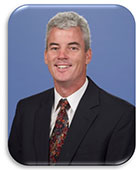
Does AI or HI (Human Intelligence) Make a Better PM?
Greg Saunders
Rm: JSOM 1.110
Read Abstract and BioAbstract:
As artificial intelligence (AI) complements project managers, will it inevitably compete, and ultimately conquer human intelligence (HI) in the project management discipline? Will a RoboPM emerge that is more thorough, precise, and responsive than humans?
A way to assess this is a review of the leadership works that have existed for over four millennia. An examination of Sun-tzu’s ~402 B.C. “The Art of War,” Major General Newman’s three-volume WWII “Follow Me,” and Chairman of the Joint Chiefs of Staff (CJCS) Colin Powell’s “It Worked for Me” reveals what humans offer. They and other leaders give us insight into human intelligence before automated tools of war, during the use of automated tools of war, and during the beginning of the use of autonomous tools of war. The works of leaders identify what is unique to human intelligence in comparison to AI.
To date military leadership has dealt with the ethics and transitions from automatic weapons to semi-autonomous weapons. With AI the weapons can become fully autonomous—just like project management tools can. Learning from the military and applying it to project management domain will prepare us for the transition and position us to succeed.
Learning Outcomes:
At the conclusion of this presentation, attendees will be able to:
- Compare AI’s strengths and weaknesses (WOW)
- Compare HI’s strengths and weaknesses (WOW)
- Explain how applying learning from the military to the project management domain will prepare us to succeed in the challenging AI environment. (PS)
Bio:
Greg Saunders is a Disciplined Agile Senior Scrum Master and PMP serving at the Army and Air Force Exchange Service, the Exchange, which is an $7B international retailer for America’s Soldiers, Airmen, and Guardians. He’s currently the manager of the Exchange’s Program and Project Portfolio Governance office, setting policy for and managing a $511M portfolio of 90 programs, projects, and initiatives. Previously at the Exchange he 1) served as PMO head with a team of 22, 2) served as the lead PM for the Exchange’s largest program—replacing the accounting systems; 3) worked with PM, governance, and system analyst leads to architect the transformation of the Exchange’s program management approach; 4) served as the systems portfolio manager of 51 primary HR, payroll, & data warehouse systems; and 5) served as the PMO head for a 16-person team managing a $150M portfolio of 60 projects. Prior to joining the Exchange, he ran a $2.5M/year business in a top-tier consultant firm. During his USAF career he re-established the Denver-based Air Reserve Personnel Center’s (ARPC) PMO; led the upgrade to ARPC’s portion of the Air Force Personnel Center’s call center that supports over 6 million reservists, retirees, and their surviving spouses; and as a colonel at the Pentagon served as both the USAF Reserves Comptroller and the Reservist to the AF CIO Director for Cyberspace Capabilities and Compliance, overseeing a team of 60 managing the USAF’s cyberspace capabilities, policy, and compliance. Over his 35-year career he has also become a Certified Agile Practitioner, been certified in ITIL Foundation, and been certified by the Air Force as a Lean, Six Sigma Black Belt. Linked in (https://www.linkedin.com/in/greg767/).
Talent Triangle:
Ways of Working =0
Power Skills =1
Business Acumen =0
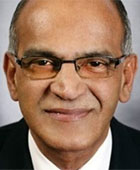
The Real McCoy – Controlling chaos in Projects
Dwaraka Iyengar
Rm: JSOM 1.117
Read Abstract and BioAbstract:
We all know that change is the only constant in Project Management. However, change of any nature whether its personnel changes, budget changes etc. if not managed effectively could lead projects to take four steps backward after gaining one step ahead. In addition to changes, lack of effective leadership skills, facilitation skills, communication skills, problem solving skills and lack of other ‘soft’ skills will also contribute to chaos in projects. This interactive presentation will analyze the sources of chaos and using texts such as the Vedas, the Bible and other scriptures glean ways to resolve complexities and control chaos in projects. Using quotes from the Bible such as ‘The intelligent man is always open to new ideas. In fact, he looks for them’ , and examples from the Bhagavad Gita of how Lord Krishna motivated Arjuna to fight the battle and not give in , this presentation will invoke our Real Agile Intelligence (RAI) instead of Artificial Intelligence (AI) to determine ways of controlling chaos in project management . The presentation will have hands-on exercises that participants will be invited to participate in to learn the techniques presented.
Learning Outcomes:
Identify and analyze causes of disruption and chaos in projects
Determine how complex situations were resolved using lessons learned from scriptures
Hands-on exercises to learn techniques presented in a sandbox environment
The key takeaways for attendees will be a) improve resilience using techniques prescribed in scriptural texts b) manage disruptions effectively c) Use AI to do repetitive ‘cookie cutter’ process and use RAI to resolve complex situations
BIO:
“Gauranga Deka, PMP, PMI-ACP, CSM, CSPO, SAFe SA, SPC4 is an IT Project Manager with expertise in building complex software solutions. Currently, he is a member of PMI Dallas Chapter. In last 20+ years, he has been leading critical roles in the development of very large, complex, mission critical software products in Banking/Financial Services Domain. He is well versed in Agile, Scaled Agile framework (SAFe) & Water fall model of software development process.
Gauranga Deka received his B.S. in Mechanical Engineering from MANIT, Bhopal & Executive MBA from Indian Institute of Management, Bangalore.
Email address: G_deka@yahoo.com
https://www.linkedin.com/in/gaurangadeka
Talent Triangle:
Ways of Working =.25
Power Skills =.5
Business Acumen =.25
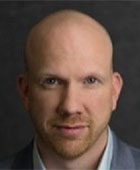

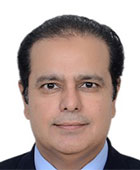
Managing Project Successfully through Artificial Intelligence (AI) and ChatGPT
Rizwan Sheikh, Rebecca Jarvis & Jeremiah Whitehall
Rm: JSOM 1.212
Read Abstract and BioAbstract:
Artificial Intelligence (AI) and ChatGPT have been the talk of the town lately. Why not? Considering the fact that ChatGPT acquired one million users in only four days and 100 million users in just two months of launching, it makes perfect sense for project managers and corporate executives to make it a discussion topic. ChatGPT grew 75% faster than any tech giant in recent times. Thus, Project Managers around the world have been scrambling to figure out the impact of AI and Chatbots on projects and their careers. This paper discusses three pathways project managers and executives can follow to launch products and successfully implement projects through AI tools such as ChatGPT, Bard, Jasper, and others. The authors review how real-life companies such as Uber, Lyft, Instacart, and Khan Academy have leveraged AI using ubiquitous mobile devices to enhance their customer base and revenues.
We also explore whether AI and Chatbots pose any threats or present opportunities to the project managers and the projects. A few research studies have shown that AI could have a profound impact on the world economy. Some industries might see a job loss due to the introduction of AI, especially those that do not adapt. Economists euphemistically call this “adjustment costs.”
In the end, the paper describes the three techniques project managers and executives can immediately utilize to implement Chatbots such as ChatGPT and enhance project success and their companies’ bottom line. The three ChatGPT pathways that are discussed in the paper include:
- Exploiting a Current Value proposition
- Expanding the Value Proposition
- Exploring a New Value Proposition
Learning Outcomes:
At the conclusion of this presentation, attendees will be able to:
- Discuss if AI and Chatbots such as ChatGPT, and others are a threat or opportunity for project managers and projects. (WOW)
- Describe how Project Managers can utilize AI tools such as ChatGPT to enhance the project success rate. (WOW)
- Explain the three pathways to implement Chatbots and deliver projects successfully. (WOW)
- Analyze how companies like Uber, Lyft, Instacart and Khan Academy have used Chatbots (i.e., ChatGPT) to boost revenues (BA)
BIO:
Dr. Rizwan “Riz” Amin Sheikh is an internationally recognized corporate executive, author, professor, public speaker, and management consultant. He has successfully led and delivered multimillion-dollar projects globally, including strategy, business and digital transformations, learning and development, and change management. Dr. Sheikh holds B.Sc. from the Ohio State University, MBA from Cleveland State University, and Ph.D. from SKEMA Business School (France). He is also PMP certified by PMI and a CSM from Scrum Alliance.
Dr. Sheikh is a recipient of the Microsoft Award for “Innovative Vision and Dynamic Leadership.” He is also the author of the Book “Blue Shark Team-Building: Leading High-Performance Teams during a Crisis.” In addition, he is a Visiting Faculty at Harvard, MIT, and other leading universities around the world.
He has spent over 25 years helping Fortune 500 companies and the public sector meet the challenges of business and digital transformations, corporate strategy, change management, project and PMO management, culture change of business operations, and developing executive leadership programs.
Dr. Sheikh has held a number of leadership positions, including Chairman of the Board, CEO, President of PMI Chapter, Dean of Business Schools, and a Senior Executive at Deloitte Consulting (USA).
His key clients and employers include:
- Deloitte Consulting
- AT&T
- PepsiCo
- Merrill Lynch
- Progressive Insurance
- STERIS Corp
- Ingersoll-Rand
- Eaton Corporation
- Pak Arab Refinery Company
- LUMS
- PITB
- Washington State Department of Transportation (WSDOT), and others.
While leading global organizations, executing business strategy, and managing multimillion-dollar projects, Dr. Sheikh has worked with Fortune 500 companies in the U.S., U.K., Germany, Finland, China, and other countries.
Talent Triangle:
Ways of Working =.5
Power Skills =.25
Business Acumen =.25

Invest In Your Time!
An International Mindset
Tooran Khosh
Rm: JSOM 1.217
Read Abstract and BioAbstract:
When asked what would be the most valuable use of an extra hour in a day, the majority would say, “spending more time on what’s truly important.” But when it comes to making the effort to gain that extra hour, it’s easier said than done unless we form a mindset habit to intentionally manage and protect our valuable time.
This is an interactive session for the participants to identify and assess the opportunities for intentional mindset habits and SMART goal setting. Through the discussion, participants will identify areas of improvement for managing time wisely and developing a successful balance for work, family, and friends.
Learning Outcomes:
- Understand how to work remotely while mindfully connecting with family and friends
- Recognize how to manage your time throughout the day
- Identify your most productive hours each day
- Recognize techniques to stay in your work zone and minimize distractions
- Identify methods to strategically manage interruptions
BIO:
Tooran established Khosh Enterprises in 2009 in Austin, Texas, offering project management expertise and transformation management consulting to drive business success through people, performance, process, and product methodology. Tooran has a diverse education and work experience with a proven record of accomplishment and delivering cross-functional complex projects $100K to $270M in cost and diverse project delivery in Information Technology, Construction, Energy Sector, and Environmental Management.
Tooran has authored 17 publications and co-authored five (5) white papers on management systems and her publication on waste-to-energy management was awarded by the Society for Technical Communication (STC); a national professional society. Tooran has presented on numerous occasions nationally and internationally including in the USA, Britain, Canada, and Mexico. Giving back to her community, Tooran teaches at the university level and mentors young graduates and professionals in leadership and career advancement.
Tooran is a Licensed Professional Engineer (P.E.) in Texas, certified project manager professional (PMP), LEED-AP (Leadership in Energy and Environmental Design professional), and certified ISO lead auditor for environmental (EMS), quality (QMS), and Safety Management Systems.
She has a Bachelor’s degree in Chemical Engineering, from the University of London, England; a Master’s in Environmental Management, from the University of Denver, CO, and a Master’s of Business with honor distinction in Global Leadership from the University of Texas, Dallas.
Talent Triangle
Ways of Working =.5
Power Skills =.25
Business Acumen =.25
May 20, 2024, 1 p.m. – 2 p.m.
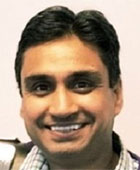
PI Planning-If you fail to plan, you are planning to fail!
Samant Kumar
Rm: JSOM 1.102
Read Abstract and BioAbstract:
PMI Talent triangle: Ways of working-Agile
Topic Synopsis:
Have you wondered why multiple agile teams fail even though everyone did their planning?
Have you wondered what could be the recipe of successful scaled agile delivery?
This presentation will talk about the following:
- In scaled agile delivery, how lack of sufficient preparation work for Program Increment (PI) planning and missed key steps impacts whole plan
- Recommendations/techniques for conducting efficient and predictable PI Planning
- Inflight PI plan management.
For example, it has been observed that teams do not do their capacity planning in PI properly and tend to load teams till 100% of their capacity knowingly or unknowingly or keep insufficient cushion to absorb unknown, manage dependencies and constant learning which leads to over commitment, missed delivery or quality issues and low team morale. In presentation, we will explore a time-tested golden capacity calculation available vs load capacity sheet which team should follow. Similarly, we will talk about many other proven key steps for a successful PI planning.
Learning Outcomes:
- Understand the key ingredients and prep work needed for PI planning in scaled agile delivery
- Learn best practices/techniques to ensure successful face to face or Virtual PI planning
- Learn from practical experiences to improve PI planning
BIO:
Samant Kumar, SAFe SPC, ICP-ACC, A-CSM, CSPO is an Agile Program Manager/Portfolio Manager with Capgemini and an Ex-IBMer. He is an agile champion with 20+ years of experience on the end-to-end Agile Program/Project Management and delivery of software solutions across various domains. He brings onboard unique wisdom and experience in understanding and solving problems. His specializations are in agile coaching, Delivery, leadership, management (Product, Program, Project), agile tools, virtual collaboration tools and career guidance. He is a postgraduate in Finance and marketing after earning Bachelor of Technology. A PMI member since 2013, he lives with his wife and 2 children in Katy, Texas. His Interests are reading, cooking and meditation. When get time away from work, He also mentor on spirituality.
Talent Triangle:
Ways of Working =1
Power Skills =0
Business Acumen =0
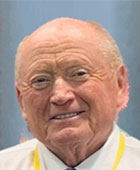
Cracking the Code to Sustained Productivity and Professional Longevity
Lee Lambert
Rm: JSOM 1.107
Read Abstract and BioAbstract:
This is the premier presentation of a topic that when properly administered may well determine the long-term success of someone just entering the job market or making a decision to change in hopes of establishing themselves as a force to be reckoned with when it comes to demonstrating value add to their chosen role or responsibility.
Those in attendance will be treated to information that has contributed to over 55 years of productive contributions to the project management profession starting in 1966. In the ensuing years Lee discovered what catapulted him into prominence and established the hierarchy for achieving success. He followed this simple formula to progress from job to a career to ultimately his calling. Interested? Listen! The next step is yours.
Learning Outcomes:
Upon completion of this presentation attendees should be able to:
- Create a personalized professional development plan for the future
- Identify key stakeholders for personal and professional growth
- Isolate the KPIs in your personal career
- Develop a communication plan that works for everyone
- Make the boss look like the hero
BIO:
Lee R. Lambert has logged 50+ years of project management experience and is considered one of the world’s thought leaders on project management methods and how they can be utilized to create and sustain value added Leadership and Collaboration capabilities. He is one of only 70 in the world to receive the honor of PMI Fellow. Lee is a Past President of the Central Ohio PMI and was one of the Founders of the Project Management Institute’s Project Management Professional (PMP) credential. His book, Project Management-The CommonSense Approach, is a best seller in the field.
At 37 years old Lee was named VP of Staff and Organizational Development for one of the world’s largest contract research organizations where he was responsible for creating and implementing a Leadership Development program focused on improved performance for project managers and supporting functional/line managers.
During his decades of platform training Mr. Lambert has provided learning opportunities to more than 50,000 professionals in 23 countries. He is regularly called upon to provide Keynote presentations on Leadership, Communications and other Project Management topics. Before his years as VP, Mr. Lambert was a project management evangelist at Lawrence Livermore National Laboratory and General Electric.
Talent Triangle:
Ways of Working =0
Power Skills =1
Business Acumen =0
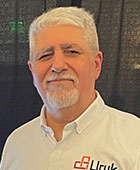
Strategic Program Management, Case Study
Mounir Ajam
Rm: JSOM 1.110
Read Abstract and BioAbstract:
This case study shows how we use advanced and adaptive project management to lead a strategic initiative (program). We will explain the initiative’s business triggers, justification, and strategic alignment. We will share how we divided the vision into stepping stones, where each vision step is a (sub)program. We explain the subdivision of the strategic program into subprograms. Next, plan each program and identify its projects. Finally, each project is divided into increments and iterations.
The following are a few vital points that we will address:
- This case study uses the concepts of rolling wave planning at multiple levels, where we first prepare the strategic program and go deeper as we dive into the subprograms, projects, and increments.
- In this program, we had to be highly adaptive and agile, mainly due to the pandemic and a team tragedy. We used a practical methodological approach that is a genuine hybrid.
- The program included integrating business aspects with technology, operations, and program management.
- Further, we will also explain how this program included the formation of a tech startup and the challenges of funding and product-market fit.
What is this program?
The strategic initiative is to build and sustain a pioneering, versatile, and comprehensive digital solution. This Integrated Organizational Solution (IOS) (Step 4) is built on a project management foundation.
Where are we today?
We have already achieved two steps and are currently working on step 3:
- Transform the digital platform into an Integrated Portfolio Management (IPM) solution.
- Go-To-Market and Product-Market Fit.
Learning Outcomes:
- Learn about converting a strategic goal to an initiative to a strategic program.
- Understand how to plan and lead a strategic program (including rolling wave planning).
- Understand how to divide a program into projects and projects into increments/iterations.
- Learn a genuine hybrid methodological process.
- Become familiar with tech startups, stages of a startup, and their challenges.
- The challenges of a solo entrepreneur and dealing with adversity and tragedy.
- Understand how competent project management is crucial to launch companies and products.
- Finally, understand that a program can include projects and operating initiatives and how to manage both.
BIO:
Mounir has over three decades of experience working on projects worth billions of US dollars. He has global experience and has worked in the US, UK, Southeast Asia, West Asia, and the GCC. His expertise includes industrial and capital projects, consultancy, and training. Mounir has worked with global leaders such as Exxon, BASF, and Saudi Aramco and delivered services to companies including SABIC, Ericson, Etihad Airways, Emirates Global Aluminum, and many ministries and government agencies across West Asia and beyond.
Talent Triangle:
Ways of Working =.25
Power Skills =.25
Business Acumen =.5
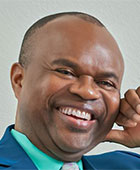
Knowledge Ethics: Navigating the Moral Maze of the Shifting Project Economy
Benjamin Anyacho
Rm: JSOM 1.117
Read Abstract and BioAbstract:
Imagine a world project churned with intangible assets, knowledge taking center stage as currency, and ethical dilemmas lurking around every corner. This isn’t the future; it’s the now, and project managers stand on the precipice of a revolution. Welcome to the era of knowledge ethics. Are you a knowledge vampire or a project knowledge manager?
This isn’t a workshop for rule-followers and box-tickers. It’s a brainstorming expedition for the bold, the curious, and those who dare question the status quo. We’ll decode the shifting project landscape, AI, knowledge, and ownership, where knowledge reigns supreme and ethical compasses spin like tops.
Dive into the murky waters of AI ethics, information overload, theft, and appropriation:
- Unmask the hidden biases embedded in algorithms and data.
- Confront the ethical landmines of ownership, privacy, and security.
- Grapple with the moral quandaries of whistleblowing and knowledge exploitation
- What about everyday information and knowledge ethical dilemmas
But fear not, intrepid explorer! We’ll equip you with a survival kit for the knowledge economy:
- Craft a personalized ethical framework to guide your every decision.
- Master the art of navigating ethical gray areas with confidence and clarity.
- Become a champion for responsible knowledge management in your projects and beyond.
This isn’t just about projects; it’s about building a future where trust is the currency and knowledge thrives ethically. Join us as we chart a course through the uncharted territory of knowledge ethics. Leave the ordinary behind and emerge a pioneer of the responsible project revolution.
Learning Outcomes:
- Analyze and identify ethical dilemmas: Participants will be able to actively analyze case studies and simulations from the Project Economy, pinpointing potential ethical conflicts related to AI, information overload, ownership, privacy, security, and knowledge exploitation.
- Develop a personalized ethical framework: Participants will design and articulate their own ethical framework for navigating knowledge-centric projects, considering principles like transparency, accountability, fairness, and sustainability.
- Lead with responsible knowledge management: Participants will demonstrate skills in implementing their ethical framework by proposing practical strategies for responsible knowledge acquisition, use, and protection within project teams and organizations.
BIO:
Benjamin Anyacho is a global citizen and a Texan. He is a quintessential project and portfolio manager with over 20 years of experience in knowledge management (KM), strategy, and innovation; he architected and led several enterprise programs, including enterprise Knowledge Management, Innovation Academy, OPM that has mentored hundreds of PMs and over 150 PMP credentialed, Innovation Academy, etc. His works have received national recognition and have been adopted by universities and institutions. His mission is to mentor one million servant-leaders. Proficient in handling complex projects and diverse stakeholders, Benjamin is the author of books including, “”The Knowledge Café: Create an Environment for Successful Knowledge Management,”” Benjamin is also a dynamic and engaging speaker, recognized for his contributions at PMI Global conferences, LIM, NASEM-TRB, AASHTO, university commencements, symposia, and as a reviewer for the Journal of Knowledge Management.
In addition to his professional pursuits, Benjamin is a dedicated bridge-builder, missionary, and “philanthropreneur,” serves as the Executive Director of Apostolic Bridge Builders, Inc. in Austin, Texas, since 2002 and is actively involved in various national and global boards, committees, and project panels, including Chair of the AASHTO IKM Research Subcommittee, the charismatic President of the PMI Austin Chapter in 2018, and a member of the Board of Trustees at Juliana King University in Houston, where he was honored with a doctorate in leadership.
Benjamin holds certifications as a PMP® and earned his BBA and MBA in Global Business from St. Edward’s University in Austin, Texas. Outside of his professional life, he is an avid runner and resides in Austin with his wife, Precious, and their two teenage children, Ben and Amara.
Talent Triangle:
Ways of Working =.25
Power Skills =.5
Business Acumen =.25
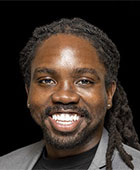

Revolutionizing Project Management: Mastering Efficiency with AI and CoPilot
Mei Lin & Bernard Smith Jr.
Rm: JSOM 1.212
Read Abstract and BioAbstract:
Navigate the transformative world of AI-powered tools in project management with an insightful session on AI-powered applications, Microsoft’s CoPilot 365, and Copilot security. This two-part presentation, led by a seasoned expert, is designed to equip project management professionals with a foundational understanding of CoPilot 365 and its role in enhancing project efficiency.
In Part 1, we’ll explore the diverse features of CoPilot 365, understanding how AI can streamline project processes and foster a more efficient work environment.
Part 2 shifts focus to CoPilot Security, delving into its basic functionalities and how it empowers project managers in leading cybersecurity projects.
This session is your gateway to asking better, more informed questions and leveraging AI tools to ‘do more with less’ in project management.
Learning Outcomes:
Understanding AI-Powered Applications in Project Management: Grasp the fundamentals of AI applications in project management, setting the stage for a deep dive into Microsoft’s CoPilot 365 and its impact on project efficiency.
Exploring CoPilot 365 Features: Gain a comprehensive understanding of CoPilot 365, including how its AI-powered features can streamline project processes and enhance work efficiency.
Introduction to CoPilot Security: Acquire foundational knowledge of CoPilot Security, focusing on its basic functionalities and the role it plays in the cybersecurity aspects of project management.
Empowering Project Managers in Cybersecurity: Learn how CoPilot Security can be leveraged by project managers to lead cybersecurity projects more effectively, ensuring data safety and compliance.
Optimizing Project Management with AI: Explore strategies to effectively use AI-powered tools like CoPilot 365 to do more with less, enhancing project productivity and decision-making.
Mei Lin BIO:
Mei Lin is a dynamic project management professional who excels in uniting teams to drive value in her role, which spans notable tenures at Microsoft and Texas Capital Bank. Her professional ethos is marked by a blend of efficiency and empathy, dedicating her days to connecting project teams and her heart to fostering positivity and kindness.
This unique blend empowers her to inspire and uplift future leaders. She complements Mei’s expertise as a Gen AI Champion AZ AI 900 certification in 2022, and her practical experience with tools like Gen AI and Microsoft CoPilot, making her a valuable guide for project managers seeking to integrate cutting-edge AI technology into their workflows.
As the author of “Mommy is a Project Manager,” she actively works towards breaking down gender biases and motivating change-makers from all walks of life.
Bernard Smith Jr Bio:
Bernard Smith Jr. is a Microsoft Engineer and tech intrapreneur known for his efforts in community and technology development. As Past President of Blacks at Microsoft (BAM) in Dallas and co-founder of the Next Step Initiative, he promotes computer science and financial literacy in underprivileged communities. Bernard’s initiatives include creating a virtual seminar to help students secure jobs at Microsoft.
His work extends to significant contributions and volunteerism with nonprofits, enhancing educational and technological access, particularly in Dallas ISD through fundraising for tech resources. Bernard’s commitment to leadership, professional development, and advocacy for continuous innovation and empowerment is evident in his active engagement in the tech community.
Talent Triangle:
Ways of Working =0
Power Skills =.5
Business Acumen =.5
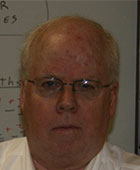
Artificial Intelligence and Emotional Intelligence – Siblings in the future of Project Management – WHY?
Gary Rechtfertig
Rm: JSOM 1.217
Read Abstract and BioAbstract:
Artificial Intelligence is coming in like a roaring lion. It is New, Extensive, and used in a multitude of industries, disciplines, and applications. I may very well be the future of many fields including Project Management. A lot of people are getting on this train. But wait. There have to be some shortfalls with this revolution. Algorithms cannot and should not replace the human interaction that is necessary to have successful projects while working with people. The missing line is Emotional Intelligence – AI’s older brother. AI cannot tell you how to interpret and respond to someone’s sudden outburst or meltdown after working long hours on a project. Let’s explore both these subjects and how they are designed to co-exist like families and not like arch enemies. They both have a great deal to contribute.
Learning Outcomes:
- Achieve an understanding of AI and EI and their basic intents, benefits, and expectations.
- Discussion of strengths and weaknesses of both concepts.
- How they can and should complement each other.
- Which one is leading the charge and is it feasible?
- What happens if these two do not get together?
- What is management’s role?
BIO:
Gary Rechtfertig is a 40+ year veteran of the IT Management and Project Management industry. As he says it “I’ve pretty much done everything right and everything wrong at least once.” After 30+ years in Industry several years ago Gary founded Doulos Project Management Training to help Project Managers (PM) get their PMP certification and train PM’s in related Project Management courses. Gary is currently the Lead Instructor for all current PMP classes and runs the daily operations of Doulos PM Training. Doulos has a base of students taught approaching 3,000 from 200+ companies in the DFW area and around the nation.
Gary has spoken at a National level on Project Management, Risk Management and Emotional Intelligence. Gary speaks several times a year on EI to local companies and PM Symposiums in the Dallas area. He has taught computer science at the Masters level at the Advanced Management Institute in Lake Forest, IL. Gary is a consultant to Fortune 100 clients and lectures at Texas Universities in Project Management, Emotional Intelligence, PMO development and Risk Management. Gary has a B.S. from Iowa State University and an MBA from Roosevelt University, Chicago, IL.
Talent Triangle:
Ways of Working =.25
Power Skills =.25
Business Acumen =.5
May 20, 2024 2:10 p.m. – 3:10 p.m.
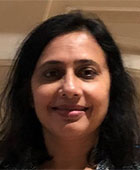
Through the looking glass of AI – Project Management in Wonderland
Suchitra Veera
Rm: JSOM 1.102
Read Abstract and BioAbstract:
The tools and innovative solutions that drove the digital transformation during the Coronavirus pandemic have now further evolved with the addition of AI (artificial intelligence) technologies. With advances in machine learning as well as large language models such as ChatGPT, AI can help to improve business process and team efficiency and enhance business and project decision-making. This presentation will discuss how project management professionals can help strengthen the linkages between projects, programs and portfolios and organizational strategy, as well as increase the likelihood of project success with an understanding and knowledge of AI and its capabilities.
The presenter will begin with an overview of basic digital technologies, data and AI concepts to set the context. Next, we will review various AI-based use cases in project management and the benefits AI can provide. Metrics required to set targets, measure, track progress and take corrective actions in an AI-based digitalized business environment will be discussed. The presenter will describe the benefits and challenges in using such technologies as well as in working on projects to build AI-based products. Important knowledge gained from conducting research to understand the experience and key learnings from other companies will be reviewed. The presentation will conclude with an overview of how these technologies are continuing to evolve, important watch-outs, and key takeaways from the presentation. The session will be interactive with audience participation and polling throughout the presentation.
Learning Outcomes:
At end of session, attendees will be able to
- Identify a set of tools and technologies with AI capabilities to assist with managing projects.
- Describe key watch outs, do’s and don’ts during the process of adapting to an AI-based project and business environment.
- Gain an understanding about what metrics may be used when engaging in data and AI-based digital transformation projects.
BIO:
Suchitra Veera has over 20 years of experience in the consumer goods, retail, financial, travel/transportation, and healthcare industries leading as product manager and leading projects and programs. She has accomplishments in developing and implementing systems integration and software product development, digital transformation, data analytics, data science and engineering. She also has over 15 years of experience in training, coaching and teaching Project Management, Systems and Business courses. She was volunteer corporate trainer at a Fortune 100 company teaching Successful Project Management and IT Service Operations, and a training facilitator for the Project Management Institute (PMI) Cincinnati Chapter and Education Director for PMI Dallas Chapter. She holds an MBA from the University of Maryland, a master’s degree from University of Virginia, and master’s and doctoral degree from Henley Business School, UK. In addition to Project Management Professional (PMP)® certification, she also holds ASQ certifications of CMQ/OE, CSSGB and CSQE, ITIL, New Product Development Professional (NPDP), Certified ScrumMaster (CSM), and SAFe Agilist (SA) certifications.
Talent Triangle:
Ways of Working =
Power Skills =
Business Acumen =
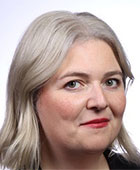
Adapting PMI Knowledge Areas “Critical to Quality” for Novice Project Managers to Minimize Risk
Liz Olson
Rm: JSOM 1.107
Read Abstract and BioAbstract:
In Summer 2020 the American Heart Association’s (AHA) Healthcare Quality Implementation Science Team (IST) centralized operations and reassigned staff to IST projects which are managed using PMI standards. Most managers now assigned to these multi-year and multi-million dollar IST projects did not have any training in project management and managed using informal practices. This gap in PMI best practice knowledge created the potential for avoidable risks to successful outcomes. This paper will describe the steps taken to identify gaps in project manager knowledge and identify the PMI Knowledge Areas “Critical to Quality”; I define these as most relevant and impactful for project success by novice project managers, taking into consideration specific project needs. Readers will be able to recognize knowledge areas, process groups and concepts that could be rephrased to use more accessible language for novice project managers while maintaining the integrity of PMI best practices. Readers will be also able to apply these techniques to their own unique circumstances to develop appropriate curriculum to minimize project risks stemming from insufficient project management experience.
In response to AHA’s restructuring in 2020, I developed a one-year project management curriculum that focused on PMI Knowledge areas “Critical to Quality”: Stakeholders, Scope, Schedule, Communications and Risk. The curriculum was offered through monthly two-hour virtual trainings, job aids, and 30-minute office hours for more in depth issues. In turn, staff reported an increased understanding of project management and I observed more skillful management with less need for escalation or intervention by senior leadership.
Learning Outcomes:
As a manager of portfolios, PMO manager or leader of other project managers, attendees of this presentation will learn the following:
- Learners will be able to define what makes a knowledge area, process group or concept “critical to quality” for novice project managers.
- Learners will be able to rephrase PMI best practices using more accessible language for novice project managers while maintaining the integrity of PMI best practices.
- Learners will be able to construct their own curriculum outlines to minimize project risks.
BIO:
Liz Olson, PMP, CLSSGB is the National Senior Director for Program Implementation with American Heart Association (AHA) and has a 22 year background in communications, strategic program development, project and portfolio management. In her current role, Ms. Olson leads a portfolio of implementation science and health care quality initiatives aimed at improving cardiovascular systems of care and patient outcomes throughout the patient journey. Ms. Olson is a certified Project Management Professional, and a Certified Lean Six Sigma Green Belt. When not managing projects, she enjoys trail running and playing competitive roller derby with her league North Texas Roller Derby based in Denton Texas.
Talent Triangle
Ways of Working =.5
Power Skills =.5
Business Acumen =0

Pivoting With Purpose: How I Used Project Management to Strategically Navigate Career Transitions
Anna Ladipo
Rm: JSOM 1.110
Read Abstract and BioAbstract:
Navigating major career transitions requires a proactive approach to capitalize on new opportunities. My multi-hyphenate journey spanning corporate leadership, academia, entrepreneurship and consulting illustrates how a career in project management can systematically enable professional evolution.
This paper explores how professionals can utilize project management skills to facilitate strategic career pivots. In today’s dynamic job market, being able to intentionally navigate transitions across industries and roles has become a crucial capability.
We will discuss how treating career shifts as defined projects with clear goals, timelines and success metrics can enable more deliberate development. The paper outlines best practices for utilizing project management tools and mindsets to systematically expand one’s professional repertoire over time.
Learning outcomes include:
Apply core project management skills in communication, organization, and strategic execution when shifting roles.
Adopt project management mindsets like pragmatism, discipline, and data-driven decision making.
Mitigate risks by validating new directions through pilot initiatives before full commitment.
Continuously monitor performance indicators and improve pivot strategy based on insights.
Managing a diverse team and inspiring changesAdditionally, the paper examines how project management skills cultivated in one domain can transfer to empower transitions to vastly different roles. We will illustrate through my experience how I pivoted between project management, entrepreneurship, academia, while always circling back to project management.
My 2023 capstone project centered on managing integration complexities following Bank of Montreal’s landmark acquisition of Bank of the West from BNP Paribas. This $16.3 billion transaction represents the largest bank deal in North American history.
Learning Outcomes:
- Apply core project management skills in communication, organization, and strategic execution when shifting roles.
- Adopt project management mindsets like pragmatism, discipline, and data-driven decision making.
- Mitigate risks by validating new directions through pilot initiatives before full commitment.
- Continuously monitor performance indicators and improve pivot strategy based on insights.
- Managing a diverse team and inspiring changes.
BIO:
Anna Ladipo is an accomplished leader bridging IT consulting, academia, and entrepreneurship. With over 15 years of experience, she is a seasoned Senior IT consultant skilled in spearheading strategic projects and programs for Fortune 500 companies.
Beyond consulting, Anna excels across diverse roles including college/university professor, ecommerce business owner. She holds an MBA from Queen’s University along with esteemed credentials such as Project Management Professional (PMP), Certified Scrum Master (CSM), and Fellow of Life Management Institute (FLMI).
As a multi-faceted professional, Anna brings proven excellence across project delivery, strategic execution, teaching, and social impact. Her blend of capabilities enables driving change across the intersections of tech, business, education, and advocacy. Anna thrives on empowering organizations, students, and communities to reach their highest potential.
Talent Triangle:
Ways of Working =.25
Power Skills =.5
Business Acumen =.25

Igniting the Next Chapter: Transforming Strategic Programs
Joan Bradee
Rm: JSOM 1.117
Read Abstract and BioAbstract:
Embarking on Strategic Programs presents a complex challenge characterized by uncertainty and the possibility of program failure. Strategic initiatives often span across the organization, introducing a multitude of uncertainties, some of which hold significant challenges and delays. In addition, established Organizational Change Management processes are not always properly in place for Strategic Programs. The absence or lack of clarity in processes can have a considerable impact on program execution, and a deficiency in training further hinders timely implementation. According to PMI, the struggle to bridge the gap between strategy and implementation was evident, with only a 56% success rate in strategic initiatives.
To overcome these challenges, a strategic and systematic approach to leading Strategic initiatives is imperative. The solution involves understanding common points of failure and implementing a successful execution model. Multiple challenges include:
- Poor Leadership engagement
- Resistance to change
- Poor implementation
- Resource challenges
- Lack of Collaboration
So, how can organizations improve their Strategic Programs’ success rate? What are the key factors which influence the success of these Programs?
This paper explores key factors that influence the success of Strategic Programs. Based upon the author’s experience in leading Strategic Programs across multiple industries, this paper will discuss key strategies to address common issues when managing Strategic Programs. A case study of a successful turnaround of an underperforming Strategic Program will be presented.
Learning Outcomes:
- Identify key factors that influence Strategic Program success
- Explain how to implement an Organizational Change process that drives Strategic Program success
- Identify strategies to address common issues when managing Strategic Programs
BIO:
“Joan Bradee is a recognized leader in Program Management. She currently serves as a consultant for Launch Consulting Group (LCG). Her strengths include turning around underperforming programs. Prior to her role with LCG, Ms. Bradee was the Director of Program Management for the Operating Systems group at Vizio.
Over the past two decades, Ms. Bradee has led a variety of strategic initiatives and programs across a variety of industries, such as healthcare, airline, and high technology, working for such companies as Vizio, Blue Cross Blue Shield, Sabre, Southwest Airlines, and Motorola.
She holds a BS in Computer Science and a BS in Chemistry from the University of Maryland. She also holds an MBA from the University of Dallas. She has her Project Management Professional (PMP) certification, as well as her Scaled Agile (SAFe) Certification, Certified ScrumMaster (CSM) Certification, and Lean Portfolio Management (LPM) Certification. Ms. Bradee began her career as a Software Developer and transitioned into Software Development Management.
Talent Triangle:
Ways of Working =.25
Power Skills =.5
Business Acumen =.25
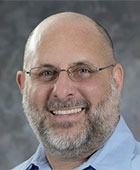
Technical Debt: Managing this Overrun Lurking in Your Project
George Sammit
Rm: JSOM 1.212
Read Abstract and BioAbstract:
Technical debt (TD) is a software engineering (SE) concept dating back to the 1990s that became a popular topic in the SE community less than a decade ago. In a few words, it is “not quite right” software and is relevant to other domains. There are many reasons why teams deliver inferior work as will be enumerated herein, but why should a PM care? The name is purposeful – a metaphor. Taking on technical debt is likened to financial debt – one pays more in the long-run. Used purposefully, it is a powerful tool. Used inefficiently, it is a long-term burden. Used haphazardly, it may become overwhelming, crippling. It is a real phenomenon, and one that may affect current and future projects alike. It usually manifests itself in the form of unexpected and substantial overruns.
This work will discuss: 1) The myriad of flavors of TD; 2) How and why teams accumulate/payoff debt; 3) How and why teams should accumulate/payoff debt; 4) Why PMs should care (in addition to overruns); 5) How PMs can actively manage this natural phenonium effectively.
Learning Outcomes:
Upon completion of this session, you will be able to:
- Identify different types of technical debt.
- Identify how and why teams accumulate/payoff debt.
- Identity how and why teams should accumulate/payoff debt.
- Realize the potential effects technical debt may have on projects.
- Manage technical debt effectively.
Bio:
George has been developing commercial software applications for nearly thirty years and leading such efforts for over twenty. He is a Staff Computer Scientist at the Southwest Research Institute, an independent, non-profit research organization which has been advancing science through applied technology for 75 years. There, he serves as an advisor in the Intelligent Systems Division which executes programs and projects that will improve human life. He holds both a B.S. in Computer Science and an M.S. in Program and Project Management from The University of Michigan and is a doctoral candidate at The Southern Methodist University studying Software Engineering. George is an active PMI member holding the PMP credential and an active Scrum Alliance member holding the Certified Scrum Professional credential among others.
Talent Triangle:
Ways of Working =.75
Power Skills =.25
Business Acumen =0
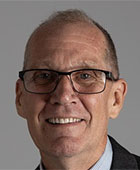
Project Management Leadership – Does AI Change My Role?
Frank Murphy
Rm: JSOM 1.217
Read Abstract and BioAbstract:
What is project management leadership? If we consider the most important traits, can some of them be replaced by artificial intelligence? We’ll explore some of the tools you can use today to streamline your administrative burden.
Will these tools replace a human in the loop managing the actual project, or just enhance their ability to lead? To answer that question, we first have to ask what we think leadership is, can it be reduced to a checklist, and what tools are available today to make those decisions?
The term “AI” covers many tasks including machine learning and deep learning. Every software vendor seems to claim it now has AI, and is the best solution. The output is still determined by processing data and looking for patterns and decisions were made during software development on priorities and guardrails. If we consider repetitive tasks, or ones that need to process vast amounts of data, the tools seem tailor made for projects. By definition, a project is a one-time event. It may be close in execution to other projects, but each is stand alone. It doesn’t mean you can’t learn, but it does mean there is a new path to blaze. Will we let computers make decisions? Will we require each decision to have human oversight? What if the computer (that has been programmed) makes what we consider to be a faulty decision? Who is to blame?
Learning Outcomes:
- Discuss how project management can be enhanced by using AI tools while reducing the risk of decision delegation. (PS)
- Identify the Leadership roles important to project management that cannot be delegated. (PS)
- Explain how to use AI tools to reduce administrative burden and enhance your chances of project success. (WOW)
BIO:
Frank Murphy works as a Program Manager for a Fortune 100 company. He retired as a CMSgt after 30 years in the U.S. Air Force. During his career he traveled to the seven continents, numerous countries, and was a key part of most military operations that needed airlift. Frank completed a DBA in Management with a dissertation that focused on remote working and employee engagement. Frank teaches business strategy and project management, is a Coach and owns a small consulting business, and manages a program implementing marketing technology for a Fortune 100 company. Frank lives in the Hill Country near San Antonio where he raises chickens, rabbits, and bees – and loves the area. He can be contacted at dbafrank@outlook.com.
Talent Triangle:
Ways of Working =.5
Power Skills =.25
Business Acumen =.25
May 21, 2024, 9:15 a.m. – 10:15 a.m.
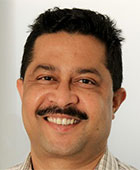
Big Companies, Small Projects – Big Impact: The Adaptive Thinking Process
Gauranga Deka
Rm: JSOM 1.102
Read Abstract and BioAbstract:
Over a period of just a few days in March 2023, the Silicon Valley Bank of California went from solvent to broke and closed on March 10th. This event marked the second largest bank failure in U.S. history, after Washington Mutual’s in 2008. A few days later on March 12, the Signature Bank of New York was shut down. Then on May 1, the First Republic Bank was closed by the California Department of Financial Protection and Innovation. At that point a large number of financial institutions, on war footing, had to execute multiple projects of critical and strategic importance. , The presenter was tasked with leading two such projects that were to be completed within 12 weeks.
Two working groups were formed which simultaneously initiated brainstorming sessions to develop a plan of action and next steps. Within weeks, dependencies were identified and technical resources were acquired. The team created a delivery baseline, and identified sequencing bottlenecks & node points. Budget was quickly provisioned and projects were created in the organization’s project tracking system.
Simultaneously, high level EPICs were developed in JIRA. A detailed communication plan was developed for different levels of management. Finally, in the 13th week both projects were delivered to the entire company across the globe, thus marking the success of this critical initiative.
These two projects created the foundation of how to plan and execute unforeseen but strategic and critical projects in a compressed timeframe. One of the important learnings was the understanding that stress narrows focus of the human mind. For future projects of a similar nature, we had to develop appropriate processes and tools. We realized that the project team must develop adaptive thinking habits so that our cognitive behavior would become automatic. Habits develop only through repetitive performance to cause our behavior to become automatic. We conceptualized this within our group and built relevant processes and tools to execute similar critical projects in the future.
Learning Outcomes:
- Review project examples to understand and develop adaptive thinking habits
- Understand how to develop adaptive thinking habits to train cognitive behavior to become automatic in critical project situations
BIO:
Gauranga Deka, PMP, PMI-ACP, CSM, CSPO, SAFe SA, SPC4 is an IT Project Manager with expertise in building complex software solutions. Currently, he is a member of PMI Dallas Chapter. In last 20+ years, he has been leading critical roles in the development of very large, complex, mission critical software products in Banking/Financial Services Domain. He is well versed in Agile, Scaled Agile framework (SAFe) & Water fall model of software development process.
Gauranga Deka received his B.S. in Mechanical Engineering from MANIT, Bhopal & Executive MBA from Indian Institute of Management, Bangalore.
Email address: G_deka@yahoo.com
https://www.linkedin.com/in/gaurangadeka
Talent Triangle:
Ways of Working =0
Power Skills =1
Business Acumen =0
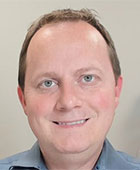
Cancer & Living – Using Project Management Skills to Manage Life Crisis
Bryon Brewer
Rm: JSOM 1.107
Read Abstract and BioAbstract:
In May 2023, life presented me with its most formidable challenge: a diagnosis of terminal cancer. This unforeseen crisis not only threatened my life but also posed a significant risk to the well-being of my four children, who depend on me. In this speech, I will share my journey of confronting terminal cancer, not as a victim, but as a proactive project manager of my own life.
This narrative begins with the shock of diagnosis, the turmoil that ensued, and how the initial despair gradually transformed into a determined quest for survival. Drawing on over two decades of experience in IT and project management, I approached my cancer battle as I would any complex, high-stakes project. I delved into extensive research, meticulously evaluated treatment options, and relentlessly advocated for myself in the healthcare system. My PMP certification and expertise in project management, particularly in areas like risk assessment and stakeholder management, became unexpectedly relevant tools in navigating this personal crisis.
Throughout the speech, I will elucidate how project management principles can be effectively applied to personal life crises. Key aspects include setting clear objectives (in my case, prolonging my life and maintaining quality of life), thorough research and information gathering, risk management (weighing treatment options against potential side effects), and stakeholder management (communicating effectively with medical professionals and family members).
Moreover, I will discuss the emotional and psychological parallels between managing a high-pressure IT project and handling a life-threatening illness. The importance of resilience, adaptability, and maintaining a hopeful outlook despite uncertainties will be highlighted.
My story is not just about survival; it’s about reasserting control in a situation that seemed utterly uncontrollable. It’s a testament to the power of project management skills in life’s most critical moments and an inspiring message for others facing similar battles. This speech aims to empower and motivate, showing that the skills we hone in our professional lives can have profound applications in our personal challenges, offering a beacon of hope and a roadmap for navigating through life’s most daunting crises.
Learning Outcomes:
- Understanding Crisis Management through a Project Management Lens: Learn how project management principles can be applied to personal crises, like a cancer diagnosis.
- Strategic Research and Information Gathering: Grasp the importance of thorough research and information in making informed decisions about treatment and care.
- Effective Communication with Healthcare Providers: Gain insights into how to effectively communicate and advocate for oneself in a complex healthcare system.
- Risk Assessment and Decision Making: Understand how to assess risks and make critical decisions regarding treatments and their potential side effects, similar to risk management in projects.
- Applying Stakeholder Management in Personal Scenarios: Learn how to identify and manage stakeholders in a personal crisis, including family, doctors, and support networks.
- Resilience and Adaptability in Adversity: Discover the importance of resilience and adaptability, and how to cultivate these skills in the face of life-altering challenges.
- Setting and Achieving Personal Goals: Understand how to set realistic, achievable goals for health and well-being, akin to project milestones.
- Utilizing Professional Skills in Personal Contexts: Learn how professional skills, especially in project management, can be transferable and beneficial in managing personal crises.
- Maintaining Emotional and Mental Well-being: Gain insights into balancing emotional and mental health while navigating through a crisis.
- Inspiring Hope and Positivity: Understand the role of hope and positive thinking in overcoming life challenges, and how to inspire and maintain these attitudes in oneself and others.
BIO:
“IT Consultant & Entrepreneur
Education:
- Bachelor’s Degree in Finance, Louisiana State University (LSU)
- Master’s Degree in IT Management, University of Texas-Dallas
Professional Experience:
- Over 20 years of experience in the IT industry
- Founded an IT consulting business 15 years ago, successfully leading and growing the company
- Specialized in project management, digital marketing, and Microsoft technologies
Certifications:
- Project Management Professional (PMP)
- Multiple Microsoft certifications, underscoring a deep expertise in Microsoft technologies
Expertise:
- A recognized authority in project management, adept at steering projects to success in varied IT environments
- Proficient in digital marketing strategies, leveraging technology to boost business presence and engagement
- Extensive knowledge and practical experience in the Microsoft stack, offering comprehensive solutions to clients
Accomplishments:
- Successfully established and scaled an IT consulting firm, providing top-tier services to a diverse client base
- Demonstrated a strong track record in project execution, consistently delivering projects on time and within budget
- Recognized by peers and clients for exceptional skills in IT strategy, implementation, and management
Philosophy:
- Believes in the transformative power of technology and its ability to drive business growth
- Committed to continuous learning and staying ahead of industry trends
- Advocates for the strategic integration of IT in business to enhance efficiency and competitive advantage”
Talent Triangle:
Ways of Working =.5
Power Skills =.5
Business Acumen =0
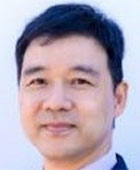
Exploring Emerging Trends in Your Project Management
Qiang Gan
Rm: JSOM 1.110
Read Abstract and BioAbstract:
Project management is a dynamic and an ever-evolving field, and staying up to date with the latest trends is essential for success.
With unprecedented challenges, we can expect to see project complexity increase more and more, but even now, not all organizations fully understand the value of project management.
In 2024, what emerging trends will help companies shape project management to become more business-focused, with people-centric approaches?
In this paper, we explore 5 emerging project management trends for 2024, covering a wide range of topics including artificial intelligence, virtual office for remote teams, and new risk aspects to emotional intelligence. These trends may signify a need for adaptive strategies and mindset to effectively navigate the evolving project management landscape.
By recognizing these emerging trends, companies may enhance their project management practices and stay ahead of the market competition.
Learning Outcomes:
Dive into the topic and you’ll learn:
- What and when the technologies should upskill
- Why AI has a significant impact on project management
- How to improve the returns on your tech investments
- Why soft skills and Emotional Intelligence plays a crucial role in effective project management.
BIO:
Qiang Gan has over 20 years of experience in software engineering and development projects, which helped industry leading companies get superior value from their investments. Mr. Gan received his MS degree from Southern Methodist University in Dallas, Texas, and is also certified by the Project Management Institute as a Project Management Professional (PMP). He has been an active member of PMI since 2005.
Talent Triangle:
Ways of Working =.5
Power Skills =.5
Business Acumen =
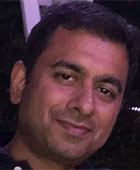
Navigating Market Challenges: 7 Key Project Management Skills for Today’s Dynamic Business Environment
Rohit Sinha
Rm: JSOM 1.117
Read Abstract and BioAbstract:
In today’s economic environment, marked by constrained budgets, strict deadlines, and a focus on boosting company revenue, the significance of project management cannot be overstated. Project managers are increasingly challenged by the dynamic nature of the tech industry and the evolving expectations of customers influenced by technology including Generative AI. They are tasked with fulfilling the high expectations of senior executives accountable to company’s revenue and growth, while also aiding the sales team in enhancing project-driven growth. Their contributions are crucial in setting key project parameters, including timelines.
In this context, the demand for adept project managers is more evident than ever. Leaders are looking for a specific set of key skills that not only ensure the success of project managers and their initiatives but also empower the company and its teams to thrive amid these market challenges. Rohit, who has extensive experience in various leadership roles and currently working as a sales leader, will cover these seven critical project management skills in this session. These skills, pivotal in helping his teams and projects succeed, will be illustrated with examples demonstrating their impact on delivery and growth.
The top 7 essential skills are:
- Insight into customer pain points.
- Sales acumen.
- Strong communication.
- Embracing an Agile methodology.
- Using technology to advance project management.
- Proficiency in negotiation.
- Robust problem-solving capabilities.
Learning Outcomes:
The learning objectives for project managers from this session are the following top skills for projects to be successful in today’s market :
- Understanding Customer Pain Points: Gain insight into identifying and addressing the specific challenges and needs of customers, which is crucial for tailoring projects to meet client expectations effectively.
- Developing Sales Acumen: Learn techniques for incorporating sales strategies into project management. This skill is vital for ensuring that projects not only meet technical and operational goals but also align with the broader sales and growth objectives of the company.
- Enhancing Communication Skills: Improve communication capabilities to effectively liaise with team members, stakeholders, and clients. This includes mastering the art of conveying complex ideas clearly and negotiating project terms assertively.
- Adopting an Agile Methodology: Understand the principles of Agile project management and how to apply them. This approach helps in managing projects more flexibly and responsively, particularly in the dynamic tech industry.
- Leveraging Technology in Project Management: Discover how to use advanced technologies, including AI and cloud-based tools, to streamline project management processes, enhance efficiency, and keep pace with technological advancements.
- Negotiation Skills: Develop skills in negotiation to ensure the best outcomes for your projects and teams. This is crucial in dealing with clients, vendors, and team members, especially when working within constraints like budgets and deadlines.
- Problem-Solving Abilities: Enhance problem-solving skills to tackle project challenges effectively. This involves identifying issues, analyzing potential solutions, and implementing the most effective strategies to overcome obstacles.
By mastering these skills, project managers can better navigate the complexities of the modern business environment, lead projects to success, and contribute significantly to the growth and profitability of their organizations.
BIO:
Rohit brings over twenty years of proficiency in Digital Consulting, Product Development, and Business Development, showcasing expertise in Digital Transformation, Automation, AI, Cloud, and Innovation. His specialization lies in Insurtech, Healthtech, and Product Engineering. As a dynamic and accomplished leader, he has a diverse background ranging from start-ups to prominent Fortune 500 companies. Rohit is recognized for his ability to drive business and product growth using cutting-edge technology and superior management strategies, with a keen emphasis on practical and efficient implementation. He holds a Master of Science in Computer Science and an MBA from UT Dallas, complemented by a PMP certification.
Talent Triangle:
Ways of Working =
Power Skills =
Business Acumen =

Building an AI-Empowered Workforce with a Culture of Resiliency for Continuous Connection
Karen Salomon
Rm: JSOM 1.212
Read Abstract and BioAbstract:
The unprecedented pressure of scaling disruptive technologies such as AI, Blockchain, etc. have executive stakeholders hyper focused on the risk/cost of sustainability whilst many managers have diminished faith in their employee’s ability to survive the disruptive pace of the evolution in the nature of “work”. To succeed now, leaders must master balancing creativity with chaos, navigating the interwoven complex layers of external and internal forces shaping the GAP towards the future of work.
Eager to address the demands of this unprecedented cultural complexity facing (not just corporate) human ecosystems, I begun applying systematic innovation/design thinking principles to the now lacking traditional change management model(s) and developed an approach that proved to be the pressure release valve game changer. These innovative design thinking infused change management principles and methodologies have succeeded in empowering teams, individuals, that admittedly were drowning in the tension and hopelessness that can be associated with projects scaling disruptive technologies with a perceived traumatic effect on the future of work for the individual. I have developed proven techniques to leverage organizational and individual trauma to drive an unprecedented transcending shift that takes teams of individuals into an irreversible new realm of motivation, purpose, performance, fulfillment both personally and professionally. From that place, disruptive scalable technology becomes a welcomed, anticipated tool, empowering infinite possibilities! The unavoidable outcome of this complex journey is a resulting corporate culture of resiliency rooted in deep value for continuous authentic human connectivity. ¡YES!
Learning Outcomes:
Identifying opportunities during AI scaling disruption to incorporate innovative approaches and techniques, including the potential digital transformation of project management processes, offering flexibility into traditional project practices and methodologies in a manner proven to increase project management resilience, revive project team engagement, and elevate employee morale and capacity to perform.
At completion of this course participants will be able to:
- Discuss common critical environmental forces of stress to project participants and the severity of emotional health implications it can have on an individual if unaddressed.
- Recognize the specificity and critical nature of potential source of trauma and hopelessness that Present State versus Future State GAPS can exist specific to scalable AI related projects.
- Discuss the common shortcomings within traditional change management methodologies and the potential traumatic severity of the pressure on the individuals at each phase of the transformational change journey.
- Recognize what questions to ask and how to engage/introduce this issue of trauma and hopelessness and what steps to take to create a safe environment to express, explore, and review empowering solutions to revive the sense of purpose for the individual/team.
- Identify 3 Design Thinking techniques that can be embedded into traditional project change management methodologies to create flexibility and reduce pressure and stress.
- Explain one example based on a case study and lessons learned from implementing one stress reducing digital transformation element into a project management process driving simplicity and maximizing value through a virtual PMO practice.
BIO:
As a twenty-five-year multicultural, and multilingual Management Consultant, Karen is a globally sought after Subject Matter Expert in Change Management, Innovation, and Strategic Planning for Fast Growth Companies. Initially earning recognition as a statistician for her strategic ability to diagnose and resolve complex forecasting and data integrity challenges, successfully implementing business intelligence, and implementation project management practices across derailed projects worldwide, Karen has earned unprecedented multiyear engagements with public recognition for her outstanding delivery track record from the Chairman of AT&T, the COO of BBVA, and the CEO and COO of Boys Scouts of America, amongst numerous local Texas CEOs. She rescued a derailed organizational transformation project resulting in Fortune 500 11th Fastest Growing ranking for a healthcare client, and has completed multiple technology projects for Fastest Growing Top 50 Inc. Fintech companies.
Karen has degrees in Finance and Economics from Southern Methodist University and certifications from Harvard in Design Thinking, Strategies for Fast Growth Companies, and e-Commerce Strategies, as well as on AI Strategies from MIT. She has been a repeated guest speaker at PMI Dallas, PMI Fort Worth, and The UTD Project Management Symposium with record attendance for her presentation on Diversity in 2009. Her global speaking engagements include a Drupal coders conference in San Francisco, and an Innovation Summit in Amsterdam alongside the Shell Innovation VP on open-source innovation on green energy, and Lego Innovation VP on the brand expansion through the launch of the Lego Movies. She also served as VP of Innovation for Untracked, a nonprofit organization integrating top national government agencies’ intelligence to deter and capture human traffickers in the US. Her current passion is working with government agencies, nonprofits, ministries, corporations, and communities, for the holistic integration of a systems/network of resources creating the required infrastructure to successfully sustainably address the functional reintegration of the homeless population in Dallas Fort Worth.
Talent Triangle:
Ways of Working =.25
Power Skills =.75
Business Acumen =
May 21, 2024, 10:25 a.m. – 11:25 a.m.
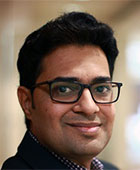
Future of Project Management shaped by Generative AI (GenAI)
Nikunj Nirmal
Rm: JSOM 1.102
Read Abstract and BioAbstract:
This paper explores the transformative potential of integrating advanced artificial intelligence, herein referred to as GenAI, into the field of project management. As the technological landscape evolves, harnessing the power of GenAI offers unprecedented opportunities to enhance traditional project management practices. We delve into key aspects shaping the future of project management, including automated planning and scheduling, predictive analytics, natural language processing for communication, and generative design for innovative solutions. The role of real-time monitoring, resource optimization, and continuous learning is investigated, shedding light on how GenAI can contribute to agile and adaptive project management methodologies. Furthermore, we discuss the implications of incorporating blockchain technology for transparency and security in project operations. Virtual and augmented reality’s potential to revolutionize collaborative environments and ethical considerations surrounding GenAI implementation are also examined. This paper aims to provide a comprehensive overview of the evolving landscape of project management, offering insights into how the integration of GenAI can propel the discipline into a new era of efficiency, innovation, and ethical responsibility.
Learning Outcomes:
- Understand how project management roles may be impacted by GenAI will impact
- Determine how GenAI can be leveraged by project managers for improved project outcomes
- Identify how project management expectations will evolve with wider adoption of AI tools
BIO:
“Nikunj Nirmal is the Head of Engineering for Amazon International Expansions to leading launch of ecommerce business in new countries. He is a business and technology executive, and an accomplished leader with an extensive experience in digital strategy, brand and customer experiences, intellectual property acquisition, product management, enterprise architecture, and technology roadmap for Fortune 100 organizations.
Nikunj has worked in several leadership roles such as Chief Technology Officer, Head of Digital Transformation, Head of Innovation Labs (USA), IT Delivery Head, and Shadow Board Member. With strong focus on customer experience and innovation, Nikunj has extensive experience in leading large-scale digital transformation programs and delivering CX centric solutions to drive sustainable growth. Nikunj serves on Forbes Technology Council and is Mentor for WingsForGrowth. He has been on the Technical Advisory Council for Linux Foundation for Artificial Intelligence, serves on two Advisory Boards at The University of Texas at Dallas (UTD) – Global Business and Retail Innovation and Strategic Excellence (RISE), Advisory Board for the University of Houston’s Customer Experience Program, Texas A&M Digital Marketing Advisory board and has worked as Adjunct Faculty at UTD. Nikunj is passionate about mentoring, and building high performance teams.
Education:
- MBA (Strategy and Finance), University of Texas at Dallas
- MS (International Management – Specialization in Information Technology), University of Texas at Dallas
- Graduate Diploma in Embedded Systems, IIT Bombay
- BE (Mechanical), M S University of Baroda
Certifications:
- Global Business Leadership, GlobalNXT University
- Project Management Professional (PMP®), Project Management Institute
LinkedIn – https://www.linkedin.com/in/nikunjnirmal/
Twitter – @nikunjnirmal
Talent Triangle:
Ways of Working =.25
Power Skills =.75
Business Acumen =

A Star is Born: Musically Skyrocket your Project to a Masterpiece
Kimia Penton
Rm: JSOM 1.107
Read Abstract and BioAbstract:
“Do you know that you have the soul of a musician?” Asked my first-grade teacher. “No sir”, I said. “Daddy says its best if I become a doctor.”
My father, a retired engineering professor, didn’t see the value or practical applications that a music education could provide. Thankfully, my teacher persisted, music has been a significant part of my life, and my experience as an Internationally touring recording artist has contributed immensely to the success of my long career in Project Management.
In this paper, I share my experience of building a virtual PMO for a fortune 10 organization. I outline ways in which I’m prioritizing my teams’ development considering the changes that AI and Automation will bring to our careers. AI’s capabilities for enhanced analytics, performance metrics, and automation of administrative tasks, along with an increase in remote and virtual teams, has shifted my focus to the strategic, influential, innovative, collaborative, observant, and adaptable traits typically attributed to creative industries.
I provide two case studies: a system integrations project that failed in our organization, and a construction project that exceeded expectations. I tie the successful project to improvisational management models from creative industries (Jureniene & Masaityte, 2023), adaptability and innovation (Kerekes & Heletya, 2020), emotional intelligence (Goleman, 1997), experimentation, team building, and a musician’s distinctive approach to the development of expertise (Brown, Sivaraman, Wilson, 2016).
The traits that are commonly attributed to musicians and creatives will become increasingly important as our profession evolves. Three key takeaways will be provided to increase chances of project success.
Learning Outcomes:
- Learn and understand the improvisational management model with key steps to apply this to an existing or future project
- Understand Lesson’s learned from the case study presented of a failed project
- Understand critical success factors for a highly successful project from the case study presented
- Takeaway three key traits or skills to focus on and develop based on research-based traits of musicians
- Understand how experimentation, improvisation, and adaptability can be used to change the course of a project that has hit a roadblock
- Recognize the impact that AI, Automation, and remote work will have on our profession and identify one development area to better prepare themselves for these changes
BIO:
Kimia Penton runs the Global Private Label PMO team at McKesson Corporation, a Fortune 10 company. With a background in Organizational Psychology and consulting, she is passionate about taking care of people and processes.
Kimia also teaches Project Management at the University of Texas at Dallas and serves on the Board of Directors for the Project Management Institute, Dallas chapter as VP, Applied Project Management.
In addition to her work roles, Kimia is an advocate for developing ourselves holistically and nurturing creative outlets. As a professional musician and internationally touring recording artist, she has written and released five albums of original music focused on empowerment, growth, and contribution. She is also a TEDx speaker on the topic of overcoming career roadblocks.
Talent Triangle:
Ways of Working =0
Power Skills =.5
Business Acumen =.5
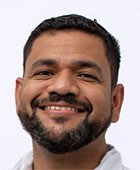
Navigating Chaos: Strategic Project Management in Cybersecurity Incident Response
Julio Ruiz
Rm: JSOM 1.110
Read Abstract and BioAbstract:
How can project management expertise turn the tide in the complex and unpredictable realm of cybersecurity incident response?” This compelling question introduces a significant conversation aimed at seasoned project managers and focuses on the vital role of project management within the challenging environment of incident response, particularly in the field of cybersecurity.
The conference opens with an insightful overview of the latest trends in cybersecurity, with special attention on the increasing threat posed by ransomware attacks. This segment is designed to provide participants with a current and comprehensive understanding of the cybersecurity landscape, a crucial backdrop for effective project management in this area.
The core of the conference is an in-depth exploration of how specific project management practices can significantly contribute to the success of incident response projects. This exploration is anchored in the real-world experiences and lessons learned by the speaker in the cybersecurity sector who participates and coordinates large enterprise cybersecurity and incident response in the U.S. Participants will receive practical insights into applying project management strategies in challenging scenarios based on practices from the PMBOK and considering the components of the PMI talent triangle, and bridging the gap between theoretical knowledge and real-world application.
By combining theoretical insights with practical applications, the conference promises to arm attendees with the tools and knowledge necessary to successfully navigate and manage the complexities of cybersecurity projects. Participants will depart with a wealth of strategies and insights, ready to apply their refined project management skills to the ever-changing challenges of cybersecurity.
Learning Outcomes:
Intended Outcomes of Instruction:
- Understand and Identify Cybersecurity Trends: Participants will gain a comprehensive understanding of the latest developments in cybersecurity, particularly in incident response and ransomware threats.
- Integrate Project Management with Incident Response: Learners will grasp how to apply specific project management techniques to enhance the effectiveness of cybersecurity incident response.
- Apply Real-World Strategies to Theoretical Knowledge: Attendees will learn to bridge the gap between theoretical project management methodologies and their practical application in cybersecurity scenarios.
Learning Outcomes (Skills Demonstrated Post-Instruction):
- Analyzing Cybersecurity Trends: Learners will be able to analyze current cybersecurity threats and trends, particularly identifying key characteristics and responses to ransomware attacks.
- Implementing Project Management in Incident Response: Participants will demonstrate the ability to apply project management strategies specifically tailored for cybersecurity incident response.
- Strategizing and Problem Solving: Attendees will show competency in strategizing for complex cybersecurity scenarios, using a combination of theoretical knowledge and practical insights gained from the instruction.
BIO:
Julio Ruiz has over ten years of experience managing information security, software development, and information technologies projects. He has served as a project manager in science, technology, and innovation, working with North, Central, and South American clients. Julio is currently a Project Manager at Avasek, an information technology company based in Cherry Hill, New Jersey. It provides cybersecurity consulting services, including incident response, IT projects, and infrastructure monitoring for clients in the United States and Canada. In his role, he works daily to support the coordination with different teams, implementing best practices and work methods to facilitate the tasks for engineering teams.
Julio holds certifications such as Project Management Professional (PMP®), Kanban Management Professional (KMP), Scrum Master, and ISO 27001 Lead Auditor. Academically, he graduated as a Systems Engineer from the Universidad Simón Bolívar in Colombia. He started his journey in the project management spectrum by graduating as a Project Management Engineering specialist at the Universidad del Norte in Barranquilla, Colombia. He also has a Master’s degree in Business Administration from Amberton University and is pursuing doctoral studies in the Ed.D Leadership Studies program at Louisiana State University.
Julio has been a volunteer in different PMI chapters for several years. He is a founding PMI Caribe Colombia Chapter member. As part of his transition to the U.S., he volunteered as a web and social media administrator for the PMI Dallas Chapter in the United States. He then joined the board of directors of the PMI Dallas Chapter as Vice President of Applied Project Management, leading various programs and projects related to the application of project management in the Dallas area communities in schools, universities, and foundations for dissemination and collaboration among the communities in the Dallas area.
Talent Triangle:
Ways of Working =.5
Power Skills =.5
Business Acumen =0
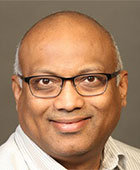
Future Org Design for Technology Teams
Sagar Gollapudi
Rm: JSOM 1.117
Read Abstract and BioAbstract:
This session will review the popular organization structure for technology teams in large financial institutions. We will compare this with the org structure recommendations from Agile Frameworks like SAFe, LeSS, Agile@Scale and Lean/ Kanban. We will review the advantaes and limitations of these structures to provide a clear idea of which org structure a framework best supports. Org structures and their associated decision power levels influence job satisfaction for all actors in an environment. It is important to understand the constraints and opportunities that organizations face as they march towards the new AI enabled technologies. Knowledge of this area is especially critical for executives and Chief Experience Officers.
We will also review the real life strategies of highly functioning and sustainable organization structures influenced by AI technologies, based on optimized realization of the factors influencing organization constraints.
Learning Outcomes:
- Recognize the org structures that different frameworks support
- Understand how org structures and associated decision power levels influence job satisfaction
- Identify constraints and opportunities that various orgs have as they begin using the new AI enables technologies
- Recognize a proposed Agile org structure that can be used with AI enabled technologies
- Understand how to develop the skills needed for the new paradigm of technology organizations and add value to projects
BIO:
Sagar Gollapudi contributed in various roles and avatars in the Technology industry for the past three decades. He is currently a Release Train Engineer at USAA. He is passionate about technology trends, organizational transformation and team enablement for outstanding outcomes. Sagar gas a bachelors in Electrical Engineering from MNIT, India and MBA in IT Strategy from University of Melbourne, Australia. he has presented previously on Agile Enablement, Agile Culture, Metrics and Data Management
Talent Triangle:
Ways of Working =.5
Power Skills =.25
Business Acumen =.25
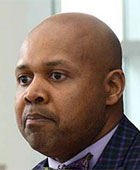
Proof of Concept Informed Strategic Alignment: A Pilot Study Supporting AI Portfolio Inclusion
Derex Griffin
Rm: JSOM 1.212
Read Abstract and BioAbstract:
A government entity embarks on a Proof of Concept (POC) study as it anticipates adding more of the most novel of its existing initiatives, those components scoped as Artificial Intelligence (AI) in nature. Stakeholders had three concerns.
- There was no resident expertise to evaluate project ideations.
- Only 1% of the existing portfolio was even remotely AI analogous, a singular lung screening initiative having lifesaving potential but offering limited knowledge maturation.
- The existing portfolio prioritization methodology did not represent a means to realize sponsorship’s strategic priorities.
To address these gaps, portfolio sponsors chartered an Integrated Product Team (IPT). The first priority was to define a sample of AI components suitable for study purposes, essentially an Inventory of Work. Next, the team would organize desired outcomes into categorical benefits, forming a basis for portfolio evaluation.
The team was also charged with developing a portfolio model to evaluate notional components for their alignment with the customer’s strategic targets. Lastly, the team was tasked with producing several reporting formats to increase the probability of stakeholder usefulness. Collectively, these Proof-of-Concept deliverables will be reviewed as a framework for portfolio practitioners at large.
Learning Outcomes:
The audience will understand a practically feasible means to deliver a representative portfolio sample from which to start or re-baseline a portfolio a notional Inventory of Work (PMI, et. al 2021). Using the sample portfolio, the audience will understand a practical approach to forming performance metrics derived from one’s portfolio sponsorship. These metrics then inform portfolio evaluation models to determine how well (or not) portfolio components are measuring-up to expected outcomes.
Lastly, the study yields the most to least desired reporting constructs; this is key in understanding not only what your stakeholders want to know but how they want the information constructed.
BIO:
Dr. Derex O. Griffin is a resident Teaching Professor at Arizona State University, the Ira A. Fulton College of Engineering, the Polytechnic School, delivering the rigors of Systems Design and Project Controls.
During his tenure as an Air Force officer, Dr. Griffin served in a number of project, program and portfolio capacities including tenures as the Chief, Base Realignment and Closure Flight, Headquarters United States Air Force, the Logistics Directorate, the Pentagon and Joint Base Andrews, Maryland. Post military service, he consulted for the Navy Bureau of Medicine, the Department of Homeland Security and the Veterans Administration.
Dr. Griffin received his doctorate in business administration from the National Graduate School, now known as the New England College of Business, focusing on Quality Systems. He holds several PMI certifications to include, the Portfolio Management Professional (PfMP), the Program Management Professional (PgMP), and the Project Management Professional (PMP). Lastly, he serves as a Certified Scrum Master.
Talent Triangle:
Ways of Working =.25
Power Skills =.25
Business Acumen =.5


